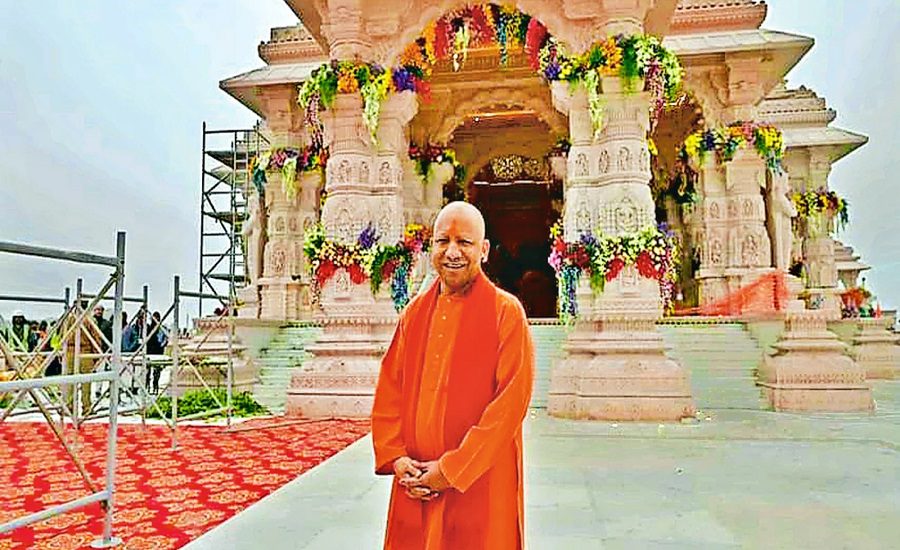Lucknow: In a historic celebration of the 150th birth anniversary of Birsa Munda, the capital city of Uttar Pradesh, Lucknow, will come alive with the “Tribal Participation Festival” starting Thursday. The six-day festival, held from November 13 to 18 at the Indira Gandhi Pratishthan, will serve as a grand convergence of India’s diverse tribal cultures. Chief Minister Yogi Adityanath will inaugurate the festival, which aims to highlight tribal identity, art, traditions, and values, reinforcing the spirit of “Ek Bharat–Shreshtha Bharat.”
Grand Cultural Procession and Tribal Showcase
The city will be adorned with vibrant tribal colors throughout the week. A majestic cultural procession will commence from 1090 Chauraha, featuring tribal dances, traditional attire, masks, and musical instruments from across India. Arunachal Pradesh will be the co-invited state, presenting a special pavilion showcasing the cultural heritage of Northeast India.
Read also: CM Yogi Adityanath Welcomes FIH Hockey Men’s Junior World Cup 2025 Trophy to Uttar Pradesh
Exhibitions, Performances, and Culinary Delights
The festival at Indira Gandhi Pratishthan will feature tribal handicraft fairs, folk dance and music performances, mask exhibitions, “Dharti Aaba” play, and clay art demonstrations. Tribal cuisine will also be highlighted through a food festival called “Jevanar,” offering visitors a taste of traditional tribal flavors. Daily cultural evenings from 5 PM to 9 PM will host over 600 artists representing 18 states, while exhibitions and fairs will remain open from 11 AM onwards.
Tribal Welfare and Development Initiatives
Over the past eight and a half years, Chief Minister Yogi Adityanath has prioritized the holistic development of tribal communities. Under the Prime Minister Van Dhan Yojana, tribal communities in the state have gained new livelihood opportunities. The “Dharti Aaba Tribal Village Excellence Campaign” has fostered development and empowerment in 517 tribal-dominated villages.
Housing and Land Rights
Under the Forest Rights Act 2006, tribes such as Buksa, Gond, Baiga, Tharu, and Sahariya have received residential land rights. The Chief Minister Housing Scheme has further strengthened the stability and dignity of forest-dwelling families.
Education and Skill Development
Tribal children are being provided quality education through Eklavya Model Residential Schools and the Jaiprakash Narayan Sarvodaya Hostels. Schools in Lakhimpur-Kheri, Bahraich, Sonbhadra, and Lalitpur are operational, while nine government ashram schools offer free education, accommodation, uniforms, and books for tribal students.
Tribal Heritage and Museums
The Tharu Tribal Museum has been established at Emilia Koder in Balrampur, with new tribal museums planned in Mirzapur, Sonbhadra, and Maharajganj. The Tharu, Buksa, Bhotia, Jaunsari, and Raji tribes are emerging as the new driving force behind a developing Uttar Pradesh.
About the Festival:
The “Tribal Participation Festival” in Lucknow celebrates the richness of India’s tribal heritage through art, culture, cuisine, and community empowerment. The festival aligns with government initiatives to promote tribal self-reliance, education, housing, and livelihood opportunities, honoring the legacy of Birsa Munda while showcasing tribal contributions to a modern India.




























